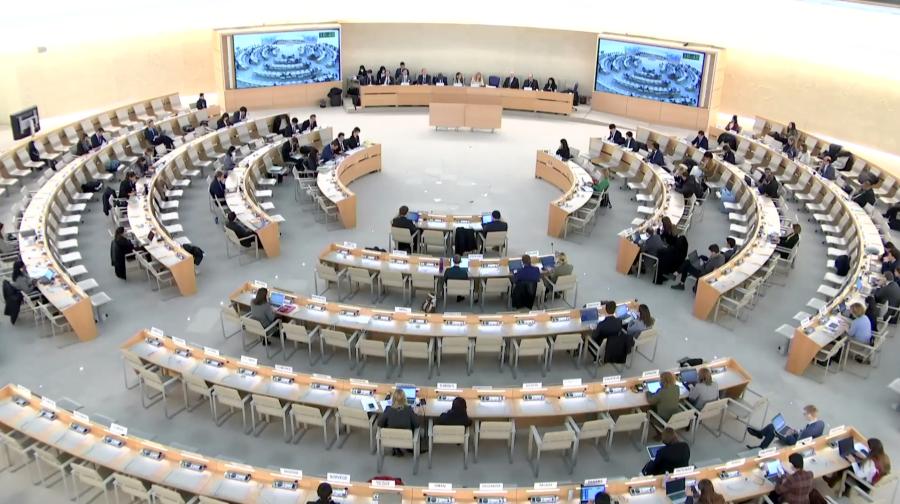Mr. President, Honourable Ministers, Executive Secretary of the Convention on Biological Diversity, Distinguished delegates, Indigenous brothers and sisters; Today I’m speaking on behalf of the International Indigenous Forum on Biodiversity (IIFB).
After two weeks of continuous work, long discussions and many negotiations we reach the end of COP10. The IIFB representatives, including Indigenous women, have actively engaged in all these discussions with our proposals and deliberations.
The IIFB welcomes the adoption of the Code of Ethical Conduct to ensure the respect for the cultural and intellectual heritage of indigenous peoples and local communities and urges Parties and stakeholders to utilize the Code when engaging with Indigenous Peoples. We also welcome the focus on customary sustainable use in the Programme of Work of article 8(j) and the theme for the in-depth dialogue on ecosystem management, ecosystem services and protected areas.
We appreciate the accommodating spirit demonstrated by Parties in the midst of hard and intensive negotiations in addressing the concerns and rights of Indigenous Peoples and Local Communities. Though we had to make compromises, we would like to acknowledge in particular the recognition of the right to full and effective participation of ILCs in the decision making processes and implementation of the Strategic Plan and the work done by IIFB on indicators.
We must stress that beyond the decisions of COP10, Parties must demonstrate their commitment to what has been agreed and act so that 2020 targets does not become another failure! With due recognition and respect of our rights, especially the United Nations Declaration on the Rights of Indigenous Peoples, full and effective participation and the recognition of traditional knowledge and customary sustainable use, we shall move forward for the compliance of the objectives of the Convention.
Indigenous peoples are facing the negative impacts of climate change especially on our territories and biodiversity. Parties need to take into account social and cultural aspects of economic and non-economic incentives; otherwise they will likely fail to protect our biodiversity and our ways of life. To us, it means resilience, the transfer of appropriate technology, capacity building and just and equitable distribution of benefits – and above all respecting our right to self determination.
With the adoption of the Nagoya Protocol on Access and Benefit-sharing, governments have put in place responsibilities in international law with respect to genetic resources and associated traditional knowledge. Indigenous peoples and local communities, already have spiritual values, ethical norms, customary laws and established rights guiding us about the use of our lands, territories, resources and traditional knowledge, which must be respected. Parties have accepted to take measures in domestic law, to uphold customary and human rights of Indigenous Peoples and to protect traditional knowledge. But much more needs to be done to end biopiracy. We look forward to working with governments towards its just and meaningful implementation
We wish to acknowledge the hospitality of our local hosts, the government of Japan and our indigenous brothers and sisters from Japan; the IIFB wishes to express its concern along with our brothers and sisters from Okinawa with regard to the construction of a military base in Henoko/Oura Bay and its potential impacts on the biodiversity.
Finally Mr. President, today at the end of the COP10, at the end of 2010, the international year of biodiversity, we are living in the future that was defined in 1992. We wonder what have we achieved? How long shall we continue to look into the future, while we need to start acting now!
The International Indigenous Forum on Biodiversity (IIFB) was formed during the third conference of the Parties to the Convention on Biological Diversity (COP III) in Buenos Aires, Argentina, in November 1996. The IIFB is a collection of representatives from indigenous governments, indigenous non-governmental organizations and indigenous scholars and activists that organize around the Convention on Biological Diversity (CBD) and other important international environmental meetings to help coordinate indigenous strategies at these meetings, provide advice to the government parties, and influence the interpretations of government obligations to recognize and respect indigenous rights to the knowledge and resources.

